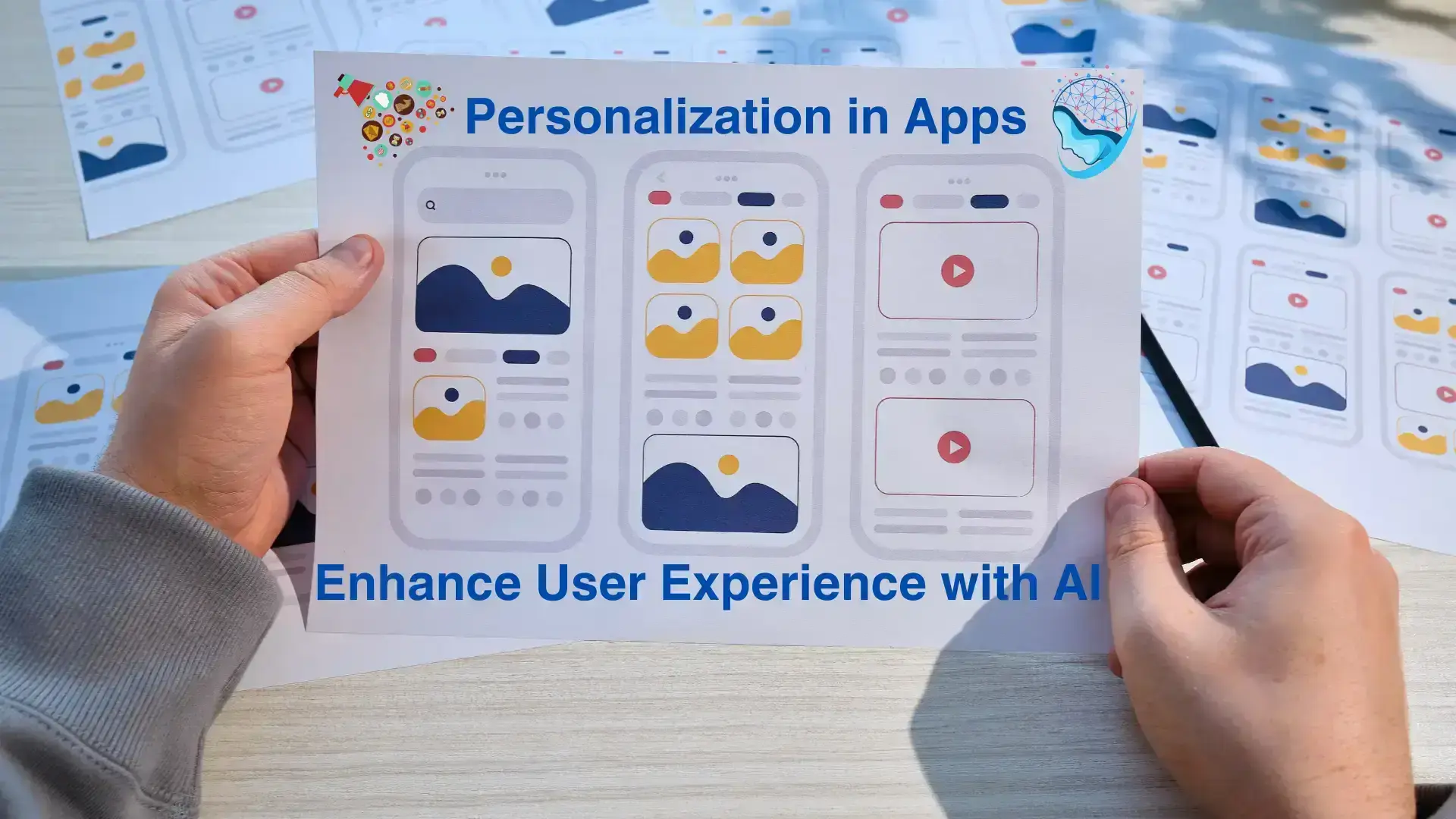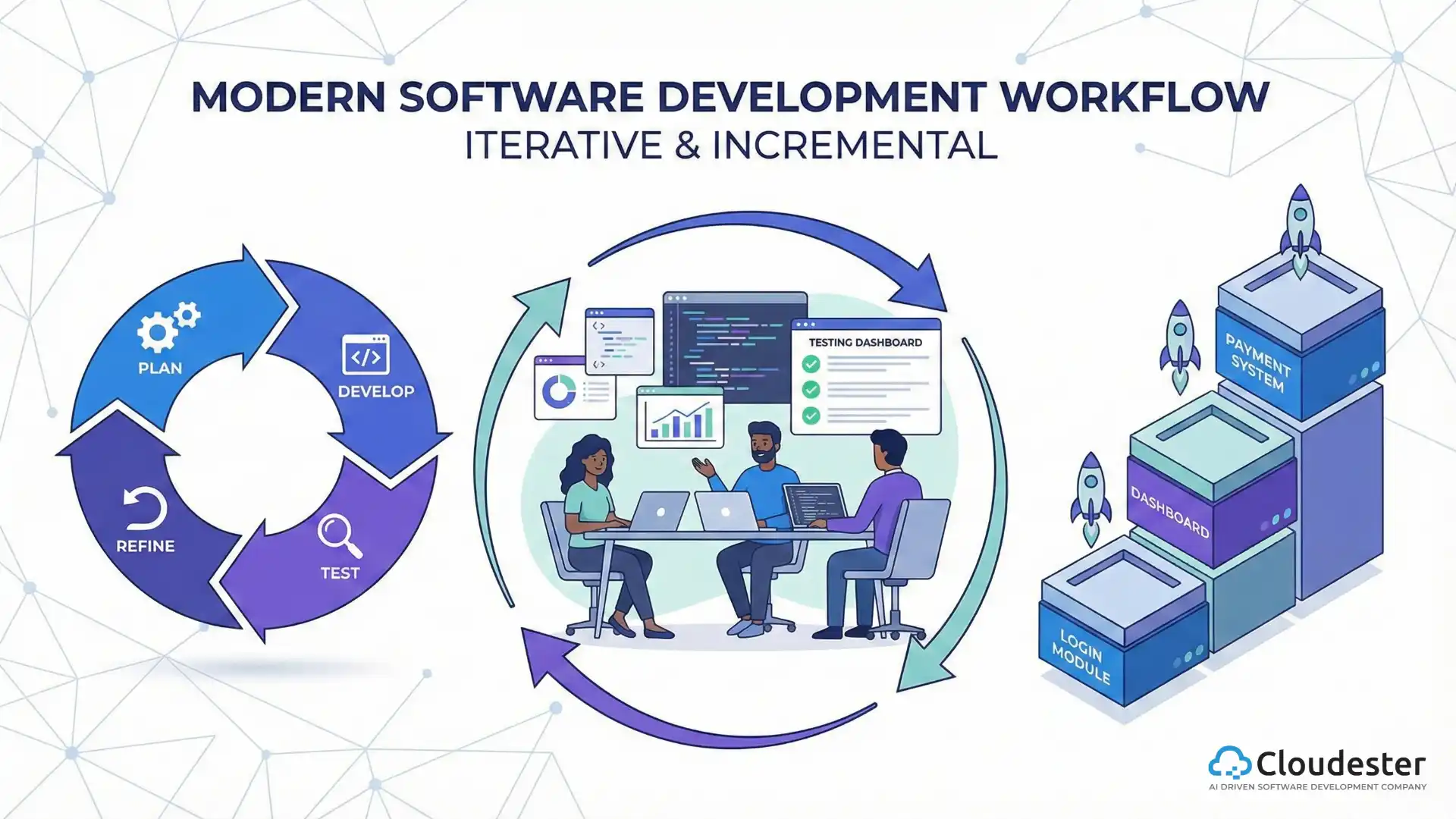Personalization in Apps: Enhancing User Experience with Artificial Intelligence

Image from Canva
In today’s digital world, users expect personalized experiences that cater to their unique preferences. AI-driven personalization in apps enhances user satisfaction, engagement, and overall app usability. Whether it’s recommending the next favorite song, curating shopping lists, or customizing app interfaces, artificial intelligence (AI) is transforming user experiences like never before.
This blog explores how AI personalizes apps, its benefits, and key considerations while ensuring privacy and security. We’ll also look at real-world examples and future trends shaping AI-powered personalization.
Understanding Personalization in Apps Using AI
AI personalization leverages machine learning, natural language processing (NLP), and data analytics to tailor app experiences for users. By analyzing user behavior, AI can predict preferences, automate recommendations, and optimize app functionality in real time.
How AI Personalization Works?
1. User Behavior Analysis:
AI studies user interactions (clicks, search history, usage patterns) to identify trends.
Custom AI Software Development Solution For Enterprises
2. Predictive Recommendations:
AI suggests content, products, or features based on previous engagement.
3. Dynamic UI/UX Adaptation:
Apps adjust layouts, themes, and settings based on user preferences.
4. Voice & Chatbot Integration:
AI assistants understand user commands and enhance accessibility.
Benefits of Personalization in Apps Using AI
1. Enhanced User Experience
AI-driven personalization ensures that users receive content and services tailored to their interests, reducing friction and improving usability.
- Example: Spotify curates personalized playlists based on listening history.
2. Increased Engagement & Retention
When apps provide relevant recommendations, users are more likely to stay engaged and return.
- Example: Netflix suggests shows based on viewing habits, increasing watch time.
3. Time-Saving & Convenience
AI eliminates the need for manual searching by offering smart suggestions instantly.
- Example: Amazon recommends products based on past purchases, simplifying shopping.
4. Improved Accessibility
AI-driven voice assistants help users with disabilities navigate apps more efficiently.
- Example: Google Assistant provides voice-controlled interactions in apps.
Real-World Case Studies of Personalization in Apps Using AI
1. E-Commerce: Amazon’s Smart Recommendations
Amazon leverages AI to analyze purchase history and browsing behavior, providing personalized product recommendations that boost sales and user satisfaction.
2. Entertainment: Netflix’s AI-Driven Content Suggestions
Netflix uses machine learning to recommend shows based on user preferences, watch history, and even the time of day a user watches content.
3. Social Media: TikTok’s Algorithmic Feed
TikTok’s AI analyzes user interactions to curate a highly engaging and addictive feed, ensuring users spend more time on the platform.
Challenges & Privacy Considerations in AI-Powered Personalization
While AI personalization enhances user experience, it also raises concerns about privacy and data security.
1. Data Privacy & Security
Users are often concerned about how their personal data is collected and used.
- Solution: Companies should implement transparent data policies, allowing users to control privacy settings.
2. Avoiding Algorithmic Bias
AI models can develop biases, leading to unfair or irrelevant recommendations.
- Solution: Developers should ensure diverse training data and ethical AI practices.
3. Balancing Personalization with User Control
Over-personalization can sometimes feel invasive.
- Solution: Provide users with options to customize AI-driven recommendations.
Future Trends in Personalization in Apps Using AI
1. Hyper-Personalization
AI will continue evolving to provide even more granular personalization, predicting needs before users express them.
2. Voice AI & Smart Assistants
Voice-controlled personalization will become more integrated into apps, making interactions hands-free and seamless.
3. Augmented Reality (AR) & AI
AR combined with AI will personalize experiences in gaming, shopping, and learning applications.
4. Predictive Analytics for Anticipatory Personalization
AI will predict user needs before they arise, offering proactive solutions (e.g., suggesting rides before a commute starts).
Why Choose Cloudester for AI-Powered App Personalization?
The team of seasoned professionals at Cloudester specializes in integrating AI technologies into app development, ensuring cutting-edge personalization features.
- Tailored Solutions: They understand the unique needs of each client and create AI-powered personalization solutions that drive user engagement and satisfaction.
- Proven Track Record: Cloudester has successfully delivered AI-powered app projects, making them a reliable partner for businesses.
- Commitment to Innovation: Staying ahead with emerging AI trends ensures clients receive the latest technology-driven solutions.
- Transparent Communication: Clients stay informed and involved throughout the development process, ensuring alignment with their vision and goals.
As apps increasingly shape our daily routines, AI-driven personalization emerges as a vital factor for delivering memorable user experiences. Cloudester Software empowers developers to implement AI-driven personalization effectively, ensuring enhanced user satisfaction and engagement.
Also read: How AI Personalization in Apps is Revolutionizing?
FAQs about AI in App Personalization
1. How does AI-powered personalization benefit my app?
AI improves engagement, retention, and satisfaction by delivering relevant content and experiences tailored to user behavior.
2. Can personalized AI be applied to all types of apps?
Yes! From e-commerce and entertainment to healthcare and finance, AI-driven personalization benefits almost every industry.
3. What about privacy concerns with AI personalization?
Reputable companies ensure transparency and allow users to manage their data privacy settings.
4. Is AI personalization costly for app developers?
With the rise of AI-as-a-service platforms, even startups can implement AI-driven personalization affordably.
Conclusion
AI-driven personalization is revolutionizing app experiences, making them smarter, more engaging, and highly tailored to individual users. As AI technology advances, future trends will further enhance personalization while addressing ethical and privacy concerns. Developers should embrace AI responsibly to create intuitive, user-centric apps that improve everyday interactions.
Are you ready to integrate AI personalization into your app? Start exploring AI solutions today!









